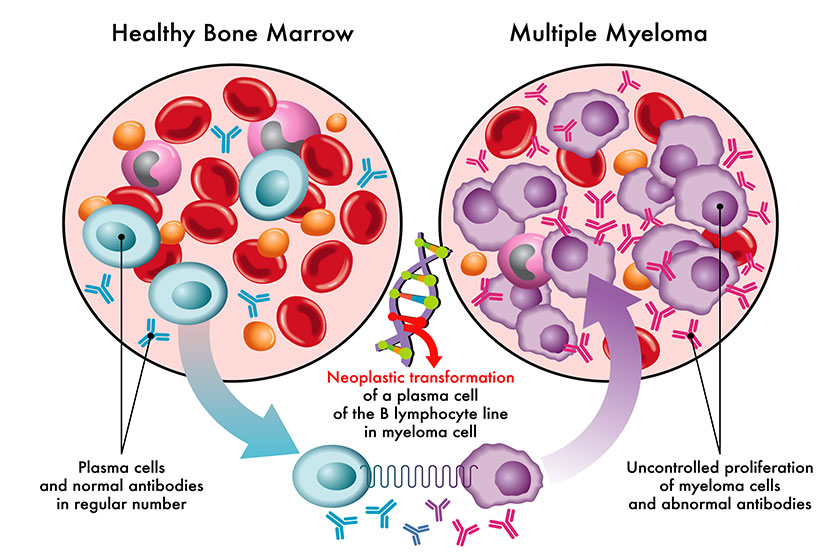Myeloma, also known as multiple myeloma, is a type of cancer that affects plasma cells in the bone marrow. Early detection is crucial, especially for seniors, as it can lead to better treatment outcomes and improve quality of life. Identifying the early signs of myeloma in seniors can be challenging because the symptoms are often subtle and can easily be mistaken for common age-related ailments.
In this article, we will explore the early signs of myeloma in seniors, the risk factors associated with the disease, and the importance of seeking medical attention promptly. By recognizing these signs early, you can take proactive steps to safeguard your loved ones’ health and well-being.
Understanding Myeloma and Its Impact on Seniors
Myeloma is a cancer that starts in the plasma cells, which are a type of white blood cell responsible for producing antibodies. These cells become cancerous and multiply uncontrollably, leading to a range of health issues. In seniors, myeloma is of particular concern because it can significantly impact their overall health and quality of life.
The disease can cause bone pain, fractures, kidney damage, and a weakened immune system, making seniors more vulnerable to infections and other complications. Early detection of myeloma is critical as it allows for more effective treatment options and helps to manage symptoms before they become severe.
Recognizing the Early Signs of Myeloma in Seniors
One of the most common early signs of myeloma in seniors is persistent bone pain, particularly in the back, ribs, or hips. This pain is often worse at night or after physical activity and may not improve with typical pain relievers. If your loved one complains of ongoing bone pain that doesn’t seem to have a clear cause, it is important to consult a healthcare professional for further evaluation.
Another early sign of myeloma is frequent infections. Because myeloma affects the immune system, seniors with the disease may experience more infections than usual, such as respiratory or urinary tract infections. These infections may be harder to treat and recur more often, indicating a possible underlying issue with the immune system.
Unexplained weight loss and fatigue are also key early indicators of myeloma in seniors. If your loved one is losing weight without trying or feels excessively tired even after a good night’s sleep, it could be a sign of myeloma. These symptoms are often subtle but can significantly affect daily life and overall health.
The Importance of Early Diagnosis and Treatment
Early diagnosis of myeloma in seniors is essential for improving treatment outcomes and quality of life. The sooner myeloma is detected, the more treatment options are available, which can help to manage the disease and slow its progression. Treatment for myeloma typically includes a combination of chemotherapy, targeted therapy, and sometimes bone marrow transplantation, depending on the severity and stage of the disease.
Supporting Your Loved Ones in Their Health Journey
Supporting your loved ones in recognizing and addressing the early signs of myeloma is vital for their health and well-being. Encourage them to attend regular medical appointments and discuss any new or unusual symptoms with their healthcare provider. Education and awareness are key to ensuring that myeloma is detected early and managed effectively.
Our community plays a significant role in supporting the health and well-being of seniors, providing access to healthcare resources, and fostering an environment that promotes a healthy and active lifestyle. We offer personalized care, regular health monitoring, and a range of activities to keep our residents engaged and thriving.
If you’re looking for a supportive and attentive community for your loved ones, contact us today to learn more about how we can help them live their best lives.







